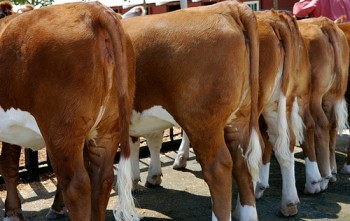In the face sagging beef sales, a slew of U.S. beef industry stakeholders have formed the U.S. Roundtable for Sustainable Beef (USRSB) to figure out how to source beef that’s, well, more “sustainable.”
And although the USRSB’s intentions might be good, Americans can’t have their steak and eat it, too. That’s because the vast amount of resources it takes to produce enough beef for the country on a commercial scale will never be truly be sustainable.
A total of 43 participants make up the roundtable, including McDonald’s, Walmart, Cargill and Tyson Foods Inc., environmental groups World Wildlife Federation (WWF) and The Nature Conservancy, as well as producers, processors, foodservice operators, packers and allied industry in the U.S. beef value chain. According to an announcement made last week, the roundtable’s mission is to “advance, support and communicate continuous improvement in U.S. beef sustainability through leadership, innovation, multi-stakeholder engagement and collaboration.”
Nicole Johnson-Hoffman, vice president of Cargill Value Added Meats and interim chair of USRSB acknowledged, “Research tells us American consumers are increasingly interested in the social, economic and environmental impacts of the beef they purchase.” The diverse groups are coming together to “establish metrics and criteria that will be used to benchmark the present and help measure improvements in the sustainability of American beef going forward,” she added.
The organizations have yet to hammer out concrete policies, but is the USRSB just trying to make Americans (who eat more beef than any other country) feel less guilty about buying Big Macs or supermarket steaks? The USRSB’s release clearly states that the group will follow the same vague definition for “sustainable beef” as set by the Global Roundtable for Sustainable Beef (GRSB), a similar multinational beef industry stakeholder group.

